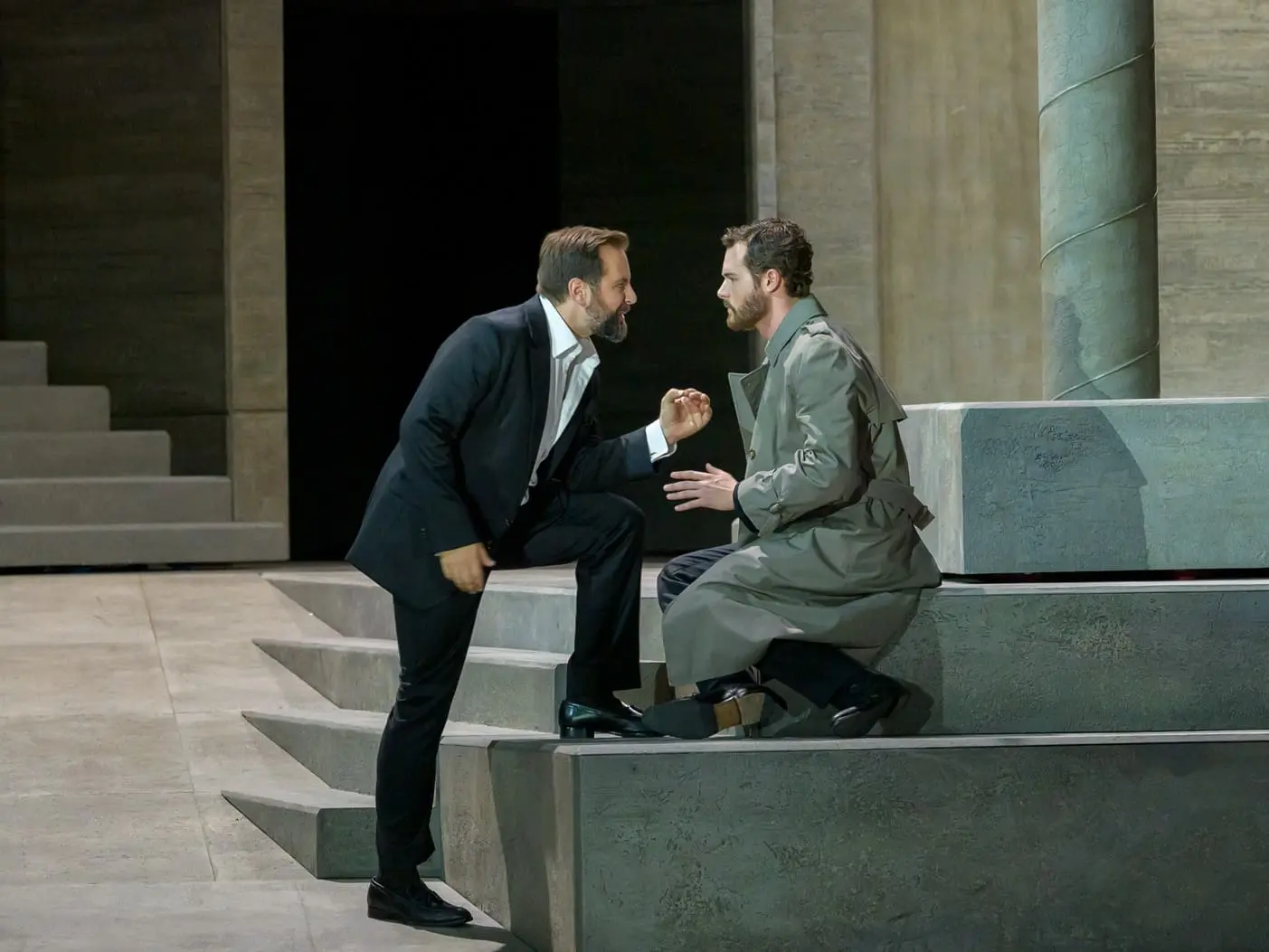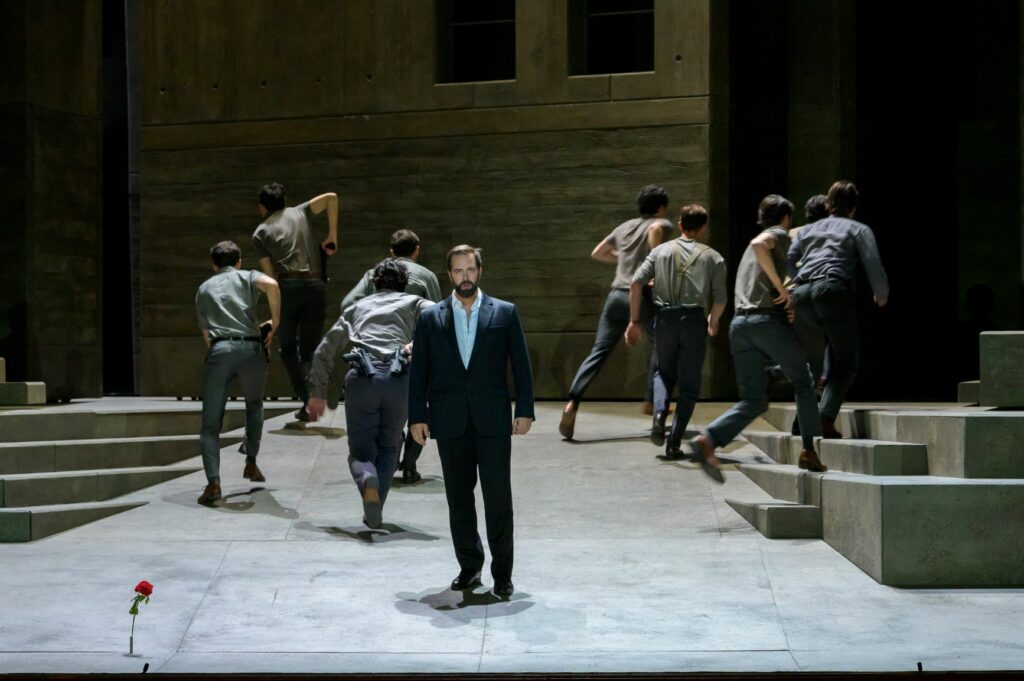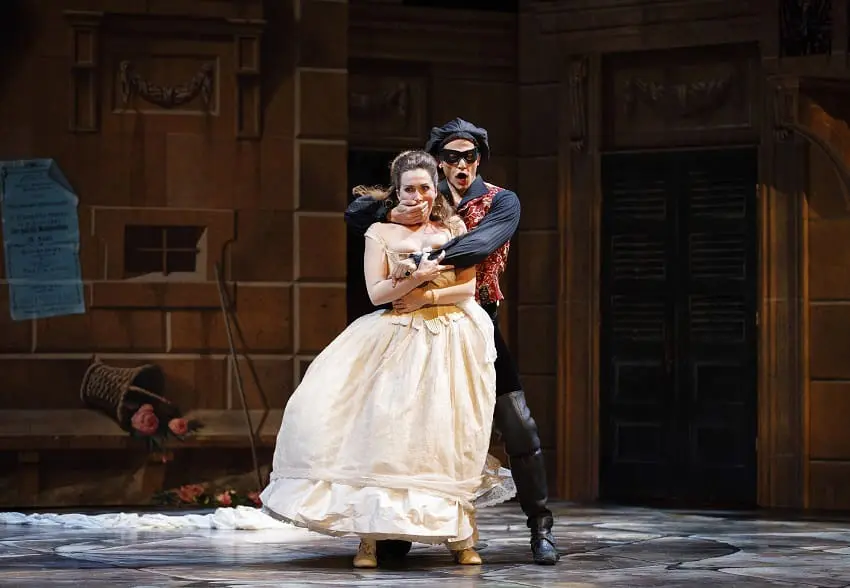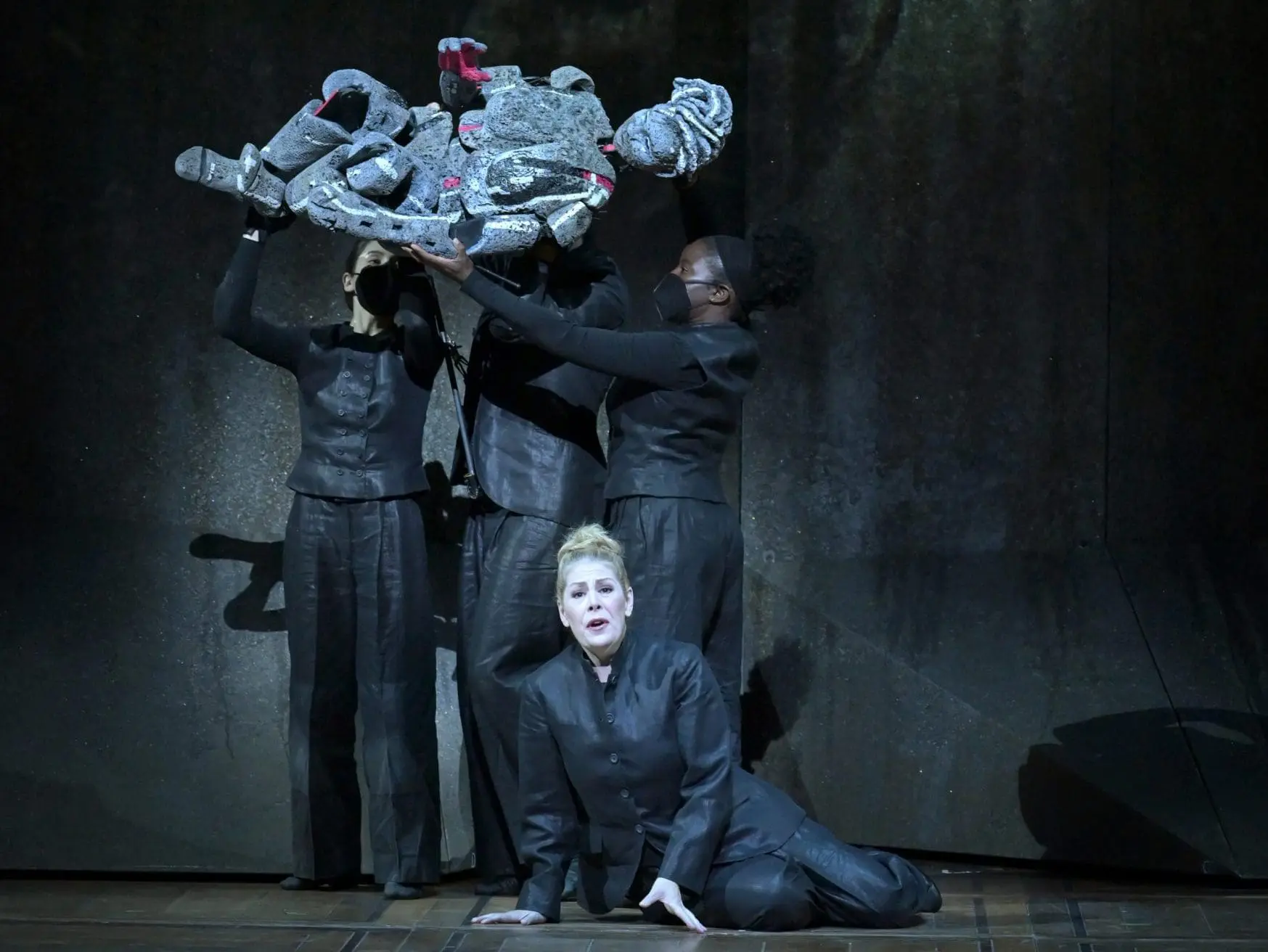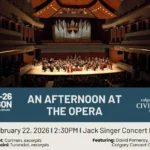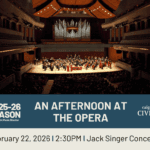For the last production of the season celebrating the 350th anniversary of Opéra national de Paris, Mozart’s Don Giovanni was entrusted to Belgian theatre director Ivo van Hove. Famous for his minimalist stagings and radical innovations at the Toneelgroep, a repertory theatre in Amsterdam, his vision of Mozart’s dramma giocoso delves into questions of power and its abuses. Set in a grey, dehumanized environment of hybrid modernist architecture (Giorgio de Chirico and Carlos Scarpa are referenced), characters dressed like Robert Longo’s ‘Men in the city’ seem to be ruling the streets. Van Hove unmistakably focuses on the abuse endured by the women: Donna Anna, Donna Elvira and Zerlina. Don Giovanni and his double, Leporello, are white-collar criminals with guns tucked under their Armani jackets. There are clear parallels to the #metoo movement but at the same time, van Hove subtly expresses the timelessness of this great work.
The cast (seen Jun. 19th) is young and homogeneous forming more a top-notch ensemble than a roster of superstars. As Don Giovanni, Étienne Dupuis is less flamboyant than usual, for example, his swaggering sergeant Belcore in Laurent Pelly’s L’elisir d’amore here last November. But this is due van Hove’s austere direction, which portrays Don Giovanni as more manipulative than outwardly arrogant, more coldly calculative than swashbuckling. Nevertheless, the Canadian baritone deploys immense charm and seduction, phrasing with infinite finesse, reserving powerful tone when needed as in “Fin ch’han dal vino.”
Philippe Sly, an outstanding Don Giovanni in his own right (Aix-en-Provence, 2017) is an unconventional Leporello, more distinguished and intelligent than his master, he pulls off the long litany of the “Catalogue aria” with elegant panache. Sly is remembered in Paris for his remarkable stage presence and his agile Guglielmo in the Anna Teresa De Keersmaeker’s Cosi fan tutte in 2017 where he also played against the exquisite Jacquelyn Wagner, here Donna Anna, then a first-class class Fiordiligi. She demonstrates consummate ease and endless vocal reserves in “Non mi dir.”

Mikhail Timoshenko (Masetto), Elsa Dreisig (Zerlina), Jacquelyn Wagner (Donna Anna), Stanislas de Barbeyrac (Don Ottavio), Philippe Sly (Leporello), Nicole Car (Donna Elvira) in Opéra national de Paris’ Don Giovanni. Photo: Charles Duprat
For van Hove, her fiancé Ottavio, Stanislas de Barbeyrac, is no anaemic marquis but a hot-blooded youth who seems more in love with Donna Elvira—the beautiful Australian soprano Nicole Car—and expresses his passion with ringing tone and precision. Car is absolutely ideal for this role with an infallible sense of style and noble tone. Her “Mi tradì quell’alma ingrate” was stupendous.
Elsa Dreisig is a jovial and fresh-voiced Zerlina, charmingly defiant of her macho fiancé Masetto, the excellent Mikhail Timoshenko.

Philippe Sly (Leporello), Étienne Dupuis (Don Giovanni), Ain Anger (Il Commendatore) in Opéra national de Paris’ Don Giovanni. Photo: Charles Duprat
Estonian bass Ain Anger, the only Wagnerian voice in the cast, appropriately stands apart as the Commendatore. Shot to death in the first scene, his presence is nevertheless felt throughout in the form of menacing steam and smoke rising out of the ground. It is as if Don Giovanni is walking on a live volcano, which is waiting to engulf him. In the last scene, rather than as a ‘Stone Guest’ the Commendatore comes back in flesh and blood to confront his murderer.
Philippe Jordan directs the Orchestre de l’Opéra national de Paris with bravura and full orchestral colours. He has a keen sense of dramaturgy and pays careful attention to the balance with singers who are fully audible throughout.
The concluding ensemble delivers the moral of the opera—“Such is the end of the evildoer: the death of a sinner always reflects his life.” The grey buildings are now bedecked in flowers and bright clothing is hanging out to dry; clearly for Ivo van Hove, Don Giovanni was a parasite on society and now that he is gone, the good and simple people can thrive.


